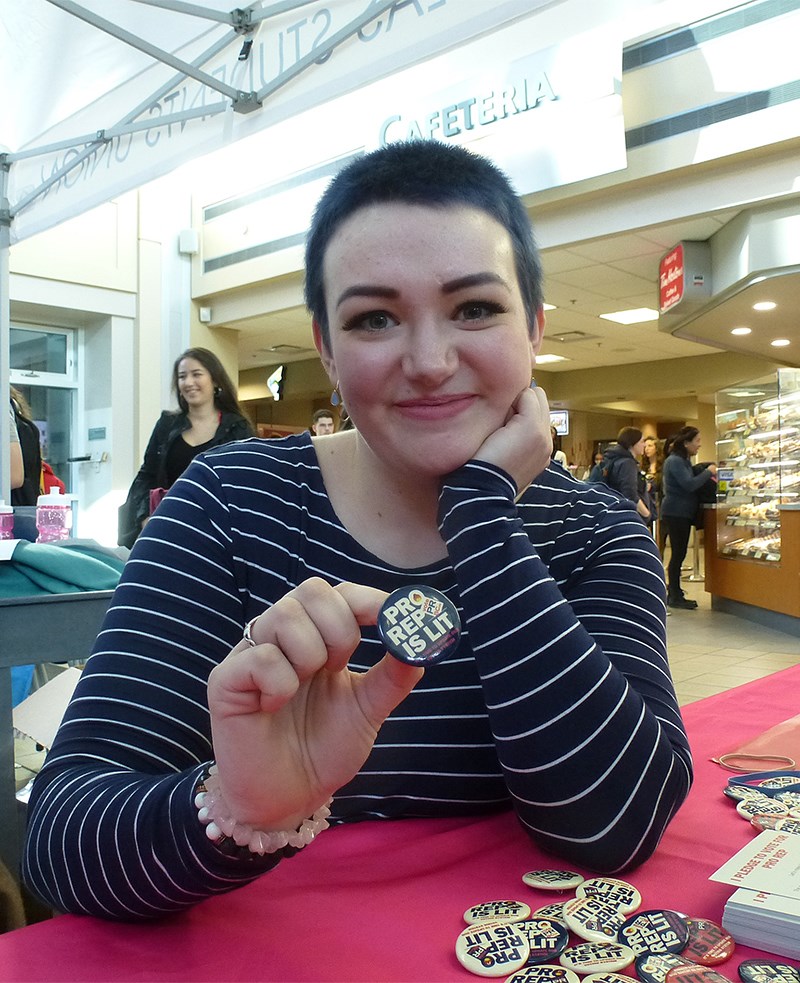Can changing a political voting system be made a hot topic among youth?
The Douglas Students’ Union hopes so and has embarked on a campaign to encourage fellow students to vote for proportional representation in the referendum on B.C.’s voting system.
The union representing 16,000 students at the Coquitlam and New Westminster campuses has joined forces with Vote PR BC and is receiving support for buttons, posters and a social media campaign.
But students didn’t just roll over and accept Vote PR BC recommendations to oust the First Past the Post System without a conversation.
While the parent body — the BC Federation of Students — has long been a supporter of proportional representation, Telka Pesklevtis said the local student union talked about the issue before jumping on board.
“We felt that proportional representation really pushes people to vote and it is important for us to have our voices heard,” said Pesklevtis, a fourth year anthropology student who graduated from Riverside secondary in Port Coquitlam in 2014.
Voter turnout among youth is typically low, well below older age groups, according to Elections Canada, and the reasons generally cited is lack of engagement and too few issues pertaining to youth.
But Pesklevtis said students she has talked to think the current First Past the Post System discourages them from voting because some seats are safe, so it doesn’t matter how they vote, and if they do vote, the majoritarian results don’t reflect voters’ preference.
While some students have expressed concerns about fringe parties having too much of an influence under proportional representation, Pesklevtis said there are safeguards, such as a 5% popular vote requirement to win a seat.
Pesklevtis, who has voted in provincial, federal and the most recent municipal election, said she has looked at videos about both systems and came to the conclusion PR is better for youth, and while students are unfazed at trying something new, the difficulty is getting them to take time away from their studies and other pursuits to get informed, register to vote, and mail off a ballot.
“The challenge is to get through to people,” she admitted.
To that end, the student union has a table at both campuses, with pamphlets and posters, and pins stating “Pro Rep is Lit.” There is also a robust social media campaign, with humorous memes supporting Pro Rep on Instagram, and regular posts on Twitter and Facebook.
There’s a sense of urgency and history-making in the referendum vote for youth, and Pesklevtis, who just received her ballot, hopes change is in the wind.
“It will be a big change for B.C. and it will be empowering for a lot of people who don’t feel their vote counts.”



